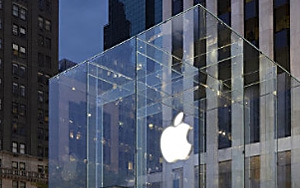
Walt Disney’s “Star Wars” franchise is the world’s most powerful brand; Apple, the world’s most “valuable” brand.
U.K.-based Brand Finance says the big
movie series tabulated a 91.8 out of 100 brand strength score, followed by Danish toy company Lego at 91.6; French cosmetics company, L’Oreal, with 91.5. Consulting companies were next: PwC at
91.5 and McKinsey with 91.4.
Nike came in at a 90.7, followed by Johnson’s & Johnson’s with 90.7; Coca-Cola at 90,4; NBC with 89.7; and Google at 89.5.
Brand Finance
says research is calculated based on a number of attributes, including emotional connection, financial performance and sustainability.
When it comes to overall brand “value,”
Apple’s brand takes the No. 1 spot at $145.9 billion in 2016 -- a 14% improvement over the year before.
advertisement
advertisement
The top five most valuable brands after Apple include Google at $94.2 billion (up
22.3%); Samsung with $83.2 billion (1.8% higher); Amazon at $69.6 billion (growing 24%); Microsoft with $67.3 billion (including up 0.3%) ; and Verizon at $63.1 billion (up 5.5%).
Completing
the top 10: AT&T, $59.9 billion (up 1.8% over 2015); Walmart, $53.7 billion (down 5.4%); China Mobile, $49.8 billion (4% higher); and Wells Fargo, $44.1 billion (improving 26.5%).
In
determining brand value, Brand Finance took a retrospective look at the share price of the world’s brands and the subsequent stock market performance.
Brand Finance says the definition
of a “brand” is based on all the expectations and opinions held by customers, staff and other stakeholders.
It goes on to say that it is “not limited to, names, terms, signs,
symbols, logos and designs, or a combination of these, intended to identify goods, services or entities, or a combination of these, creating distinctive images and associations in the minds of
stakeholders, thereby generating economic benefits/value.”